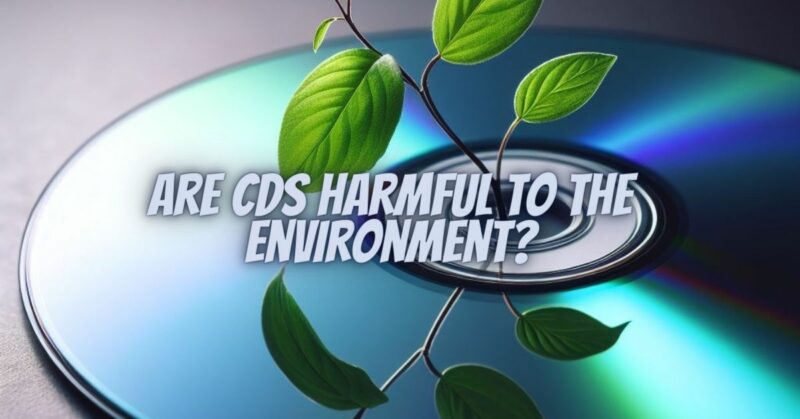CDs (compact discs) are a popular format for storing and listening to music. However, CDs have been criticized for their environmental impact. The production of CDs requires the use of petroleum-based products, and CDs are not easily recyclable.
Here is a more detailed look at the environmental impact of CDs:
Manufacturing
CDs are made of two main materials: polycarbonate and aluminum. Polycarbonate is a type of plastic that is made from petroleum. Aluminum is a metal that is also extracted from the ground.
The production of polycarbonate and aluminum requires a lot of energy. It also produces greenhouse gases, such as carbon dioxide, which contribute to climate change.
Transportation
Once CDs are manufactured, they need to be transported to retailers and consumers. This transportation process requires energy and produces greenhouse gas emissions.
CDs are also relatively heavy and bulky. This means that they require more energy to transport than other formats, such as digital music files.
Disposal
CDs can be recycled, but the recycling process is not very efficient. This is because polycarbonate and aluminum are difficult to separate from each other.
If CDs are not recycled, they will end up in landfills. Landfills produce methane, a greenhouse gas that is 25 times more potent than carbon dioxide.
Alternatives to CDs
There are a number of alternatives to CDs that have a smaller environmental impact. These alternatives include:
- Digital music files: Digital music files can be stored on computers, smartphones, and other devices. Digital music files do not require the use of petroleum-based products or the transportation of physical media.
- Streaming music services: Streaming music services allow users to listen to music online without having to download the music files. Streaming music services do not require the use of petroleum-based products, but they do require energy to power the servers that store the music files.
CDs are not a very environmentally friendly format for storing and listening to music. The production of CDs requires the use of petroleum-based products and produces greenhouse gases. CDs are also not easily recyclable.
There are a number of alternatives to CDs that have a smaller environmental impact, such as digital music files and streaming music services.
If you are concerned about the environmental impact of listening to music, you can consider switching to a more environmentally friendly format.


